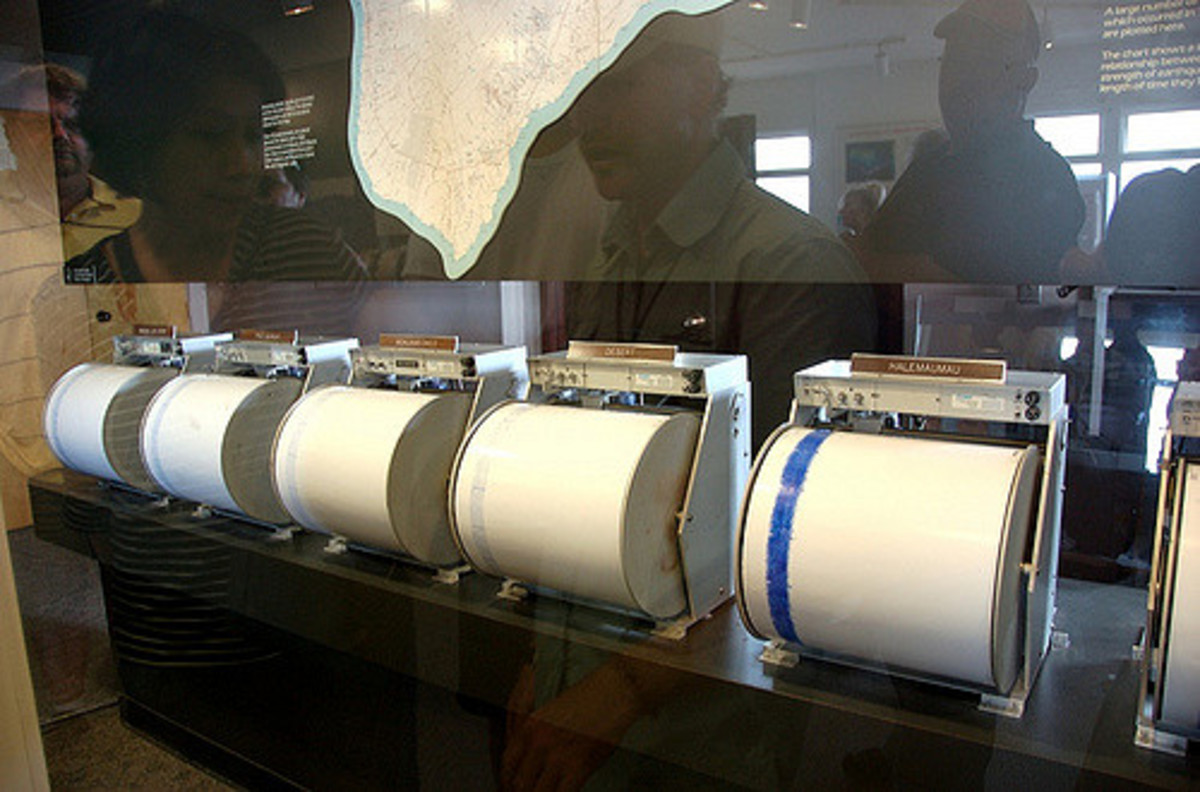Mind Blowing Facts you should know but you don't - Part 3
1. Which metal is the best conductor?
The answer is Silver.
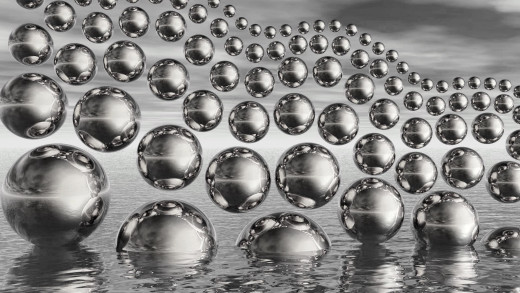
There are two simple reasons we use copper instead.
- It is cheaper
- It is the second best conductor
A fantastic and agreeably mysterious fact about silver is its antibacterial properties.
Greeks and Romans have been keeping food and drink in silver containers since the 5th century, after discovering that food stays unrotten for longer durations when in there.
Don't try eating silver though. While it definitely kills bacteria in labs, it probably won't do so inside your body. Secondly, intake might turn your skin blue; a symptom of the disease argyria which is associated with ingestion of diluted silver particles in water.
And while we're on it, pure water is a fabulously bad conductor. H2O molecules cannot conduct unless there are chemicals dissolved in it, e.g. salt. In fact, pure water is often used as an insulator.
Sea water is hundred times a better conductor. And yet, MILLION times worse than Silver.
2. How do we measure earthquakes?
The MMS scale has taken over the Richter scale now. Devised in 1979, MMS stands for Moment Magnitude Scale.
The problem with Richter scale is, it measures the seismic waves or vibrations, basically the strength of the shock waves. But that is not a complete description of an earthquake; Two earthquakes may get the same score on the Richter scale but cause phenomenally different degrees of destruction.
What the MMS scale does is it multiplies the distance of the slip between two plates, by the area that gets affected. Therefore, its score expresses the energy released by the earthquake, pretty accurately predicting the possible devastation.
It is noteworthy that both scales are logarithmic; Meaning a two point increase means hundred times more power.

3. What is the commonest material in the world?
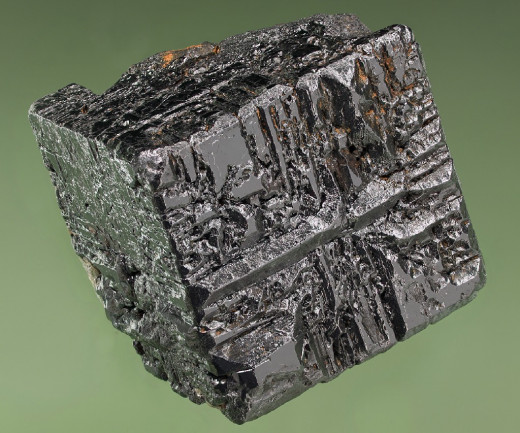
It is a mineral compound of silicon, oxygen and magnesium. Scientists believe this compound is what Earth's mantle is made of. It accounts for half the total mass of the planet.
This material might be the Incredible Hulk of superconductors, i.e. it may conduct electricity with Zero resistance at, get this, NORMAL temperatures(Presently superconductors work at annoyingly low temperatures. Best recorded so far is -135 degree C). It could make trains 'float' and computers work at godly speeds.
The name's skite. Perovskite.
4. What does the moon smell like?
The moon smells like gunpowder. Now I don't know if I should laugh or be scared at the idea of lighting a match on the moon and accidentally dropping it(Although nobody knows how fire is going to react in deep space, except for the fact that a wick burns in dome shape and the flame is sluggish and freakishly quiet).
Anyway, coming back to the point..

Obviously each of the twelve people that have been on moon did so snug inside their airtight space suits, but apparently, moon dust is clingy and lots of it stuck to their suit and came back with them inside the spacecraft.
Reportedly, they said moon dust smells like gunpowder, feels like snow, and doesn't taste bad.
It is made of silicone dioxide mostly, courtesy of meteors banging on the moon's surface. It also contains calcium, magnesium and iron.
5. How many states of matter are there?

Solid, liquid, gas right?
At this point, you already know this wouldn't be a question in this article if life was so easy. I'm gonna cut to the chase. Fifteen. So far.
Namely:
solid, amorphous solid, liquid, gas, plasma, superfluid, supersolid, degenerate matter, neutronium, strongly symmetric matter, weakly symmetric matter, quark-gluon plasma, fermionic condensate, Bose-Einstein condensate and strange matter.
The most hip of these is the Bose-Einstein condensate or 'bec'. When you cool an element to an extremely low temperature(just a fraction above absolute zero i.e. 273 degree C, theoretically the temperature at which everything stops moving), bec happens. Put that bec in a beaker and maintain the low temperature and with ghastly intent, the bec will crawl up the side and de-beaker itself.
Einstein predicted the existence of bec in 1925 after studying Satyendra Nath Bose's work.
6. How would you fly through an asteroid belt?
The answer is, Whooooshh! Easily. Trust me, don't believe the movies, it is Highly Unlikely that you will bump into an asteroid.
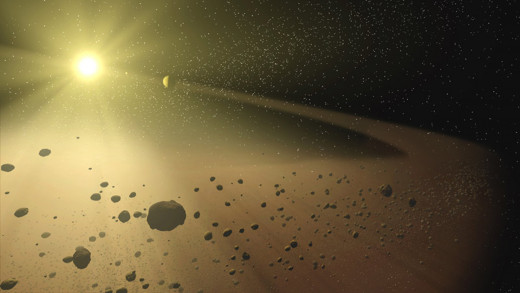
Although there are clusters called families, they are much much apart than you'd think. The distance between two large asteroids is nearly 1.25 million miles.
I'm sorry about this, but you'd be in fact lucky if you spot even a single asteroid in your course.
If you do find one while you're flying past, make sure to name it!
The International Astronomical Union has a Committee of fifteen dedicated people in their department of Small Body Nomenclature. Here are some names they have provided.
Bonk, Robinhood, Gary, Dick, Fanny, Seanconnery(should have saved my Bond joke), Tea, HumptyDumpty.
Hey, it's a difficult job ok?
7. Does the moon go round the earth or earth round the moon?
Don't you know? The answer is always Batman.
But for the boring people, it is Both.
Both these celestial bodies go round one another orbiting a common center of gravity located a thousand miles below the surface of the Earth. So basically, Earth makes three different rotations around this center, the Sun and its own axis.
Confused? Good, I said Batman but it wasn't good enough.
Even Newton said that imagining the moon's movement gave him a headache.
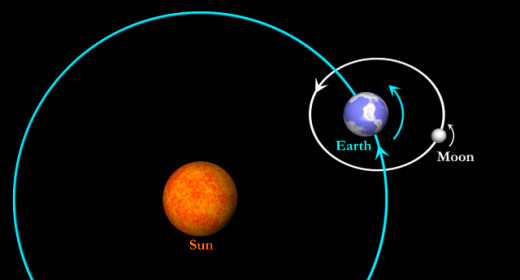
Find more facts here
- Mind Blowing Facts you should know but you don't - Part 4
4th instalment: A list of facts very rarely known. The ones that you think you know, you know wrong. Don't believe me? Find out. - Mind Blowing Facts you should know but you don't - Part 2
2nd instalment: A list of facts very rarely known. The ones that you think you know, you know wrong. Don't believe me? Find out. - Mind Blowing Facts you should know but you don't - Part 1
A list of facts very rarely known. The ones that you think you know, you know wrong. Don't believe me? Find out.



